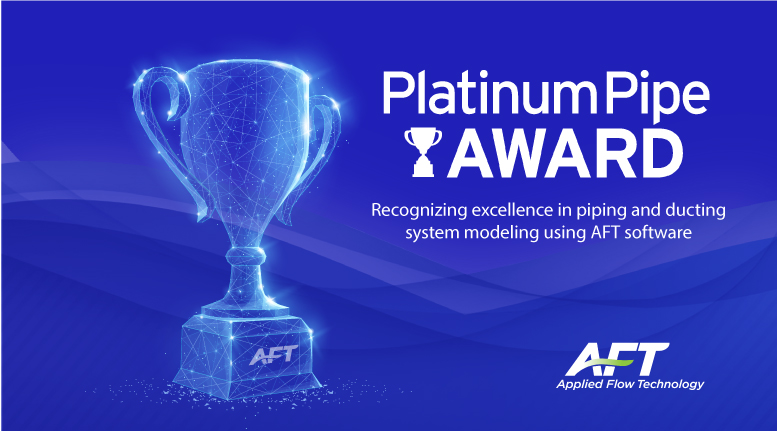AFT Blog
Space Debris, Forever Chemicals and Zombie Movies - the Quest for Sustainability
While Hollywood scares us in an entertaining fashion, modern media seems determined to scare us about anything and everything else. Climate change! Deadly viruses! Radical elements on each end of the political spectrum threatening us and our families!
Without resorting to fear tactics, I want to talk about this today.
Technology is incredible. It changes the world and us personally. It opens new opportunities to learn and grow and be more productive. It makes us safer. It saves us time. It helps us prosper.
Technology is also scary. It invades our privacy. It threatens our health. It damages our planet.
Humankind has a tendency to view new frontiers as limitless. Whether it be the Old World explorers and ocean resources, the New World expansion and land resources of the Americas, or the expansion into Space and (maybe soon) Mars. It was all viewed as limitless at one point. And treated that way.
I am fortunate to live in Colorado, considered by many as the most scenic of the 50 states of the USA. Two years ago I drove an ATV across part of Colorado's history and saw the blight leftover from the frenzied mining rush of the 19th century – A Scenic Journey into Colorado's Mining Past Over Engineer Pass. The many piles of ugly dirt on otherwise beautiful Colorado mountains are a testament to an earlier time where the land and mineral resources of Colorado were viewed as limitless. I have become a firm believer in requiring private enterprises who disturb our natural landscape to be legally required to return it to its original form in some way.
Along these lines, today I read two recent articles that are very different but have a similar theme. That theme is one where technology meant to benefit us is having some potentially dangerous side effects.
The first is an industry where I got my start as engineer – Space. I was aware of the issue of space debris back in the 1980s when I worked as a young rocket engineer. Today this issue has multiplied in number and complexity. The article, How space debris threatens modern life, discusses the "Kessler syndrome". In short, when objects are destroyed or abandoned in space, they can stay in orbit for a long time. Even small millimeter-sized objects traveling at high velocities (7 km/s, 4 miles/s) can damage or destroy satellites and space stations. They can be lethal to astronauts on space walks. The above article estimates there are 1 million such manmade objects orbiting the earth – many of them for decades or centuries. Just last week the recently launched James Webb telescope (something that AFT software was used to help design!) – encountered a micrometeoroid (which might have been manmade or maybe was just natural space debris).
The Kessler Syndrome mentioned above relates a period where the collisions among existing space objects will only create even more space debris. Here is an excerpt:
Over time, Kessler argued, a chain reaction of cascading collisions could one day make low Earth orbit hard to access and even prevent manned spaceflight from leaving Earth: a phenomenon since labelled the "Kessler syndrome".
At one time Space was viewed as limitless. And in some ways, it is. But the orbital paths around Earth are not limitless. And we may have inadvertently created a huge problem which will one day block our access to Space. Can technology save us? Maybe. Another excerpt:
A cluster of startups has emerged to help navigate this new reality, and perhaps begin the process of cleaning up low Earth orbit. But some experts believe the chain reaction has already begun.
The second article I read today is closer to home. It is the issue of so-called "forever chemicals" – also known as PFAS. See the U.S. Environmental Protection Agency (EPA) description here – PFAS Explained. The article I read described a particular situation in Belgium where a 3M plant has operated for many decades. This plant has produced PFAS and still does in some form. But it has impacted the local population and their health. Read more about it here: 3M's 'Forever Chemicals' Crisis Has Come to Europe.
Similar to space debris, land and water resources were once viewed as limitless. And well-intentioned companies like 3M, trying to make products to help people, have created a significant health issue that hurts people. But our land and water resources are not limitless. And companies that hurt local populations need to be accountable for that. To be fair, it sounds like the science is not settled on this. But to my mind it remains a cause for concern.
I am a firm believer in free enterprise. Heck, I started AFT 30 years ago. But I also look with concern on the long term implications of humankind's activities. Our environment does have limitations. I personally am not a fan of going back to live in caves – or (like in the 19th century and before) most everyone living on farms. The only true limitless resource is humankind's ingenuity. It is comforting to think that someone will come up with a good idea to solve these and other similar problems. While that has often been true in the past, it may not hold true in the future.
While I am entertained by the post-apocalyptic worlds created by Hollywood, I know I do not want to actually live in one of those worlds. Are we "destroying the planet" like the sensationalized news items we all see in modern media? Well, I am not convinced much of anything in the sensationalized news cycle has much to do with reality (you have probably seen this parody on "Dihydrogen Monoxide").
However, we engineers and technologists do need to think bigger than ever before. We live on an awesome planet with many beautiful places (like Colorado!). Let's work together to incorporate different ways of thinking that recognize limitations do exist.



Comments